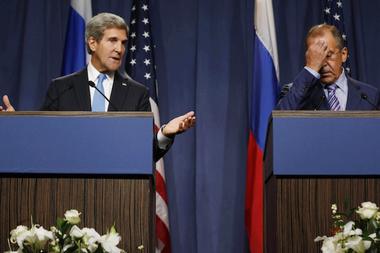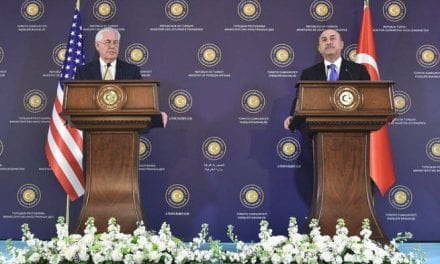US Secretary of State John Kerry says Russia and the US have established a common understanding of required steps to bring peace back to Syria.
Kerry made the announcement in a news conference with Russian Foreign Minister Sergei Lavrov in Moscow.
Kerry said that the two countries were still divided over the future of Syrian President Bashar al-Assad.
Washington insists that Assad must step down before any peace process can yield results, but Russia opposes the idea, arguing that the Syrian president is defending his country against terrorist groups.
“We have agreed to steps that if implemented in good faith can address two serious problems I have just described about the cessation,” Kerry said.
“We still believe that Syria can’t have peace while Assad is there. We have a difference with Russia on that,” he added.
However, he was optimistic about the outlook of a US-Russia brokered truce that went into effect in February and helped calm tensions in some parts of the conflict-ridden country.
“It is possible to help restore the cessation of hostilities, significantly reduce the violence and help create the space for a genuine and credible political transition,” he added, saying the steps would not be made public because both sides still need to work on them.
Lavorv, for his part, hinted at progress during the talks that started on Friday morning and involved a meeting between Kerry and Russian President Vladimir Putin.
“We have a common understanding about these concrete steps, which Russia and the USA – as co-chairs of the Syria Support Group – could take to enhance the effectiveness of our work,” Lavrov noted.
Kerry arrived in Moscow on Thursday and met with Putin soon after to discuss the situation in Syria.
Following the meeting, the US State Department said in a statement that without “concrete and near-term steps” diplomatic efforts to end the Syria conflict could not go on “indefinitely”.
Syria has been gripped by foreign-backed militancy since March 2011. United Nations Special Envoy for Syria Staffan de Mistura estimates that over 400,000 people have been killed in the conflict.



















